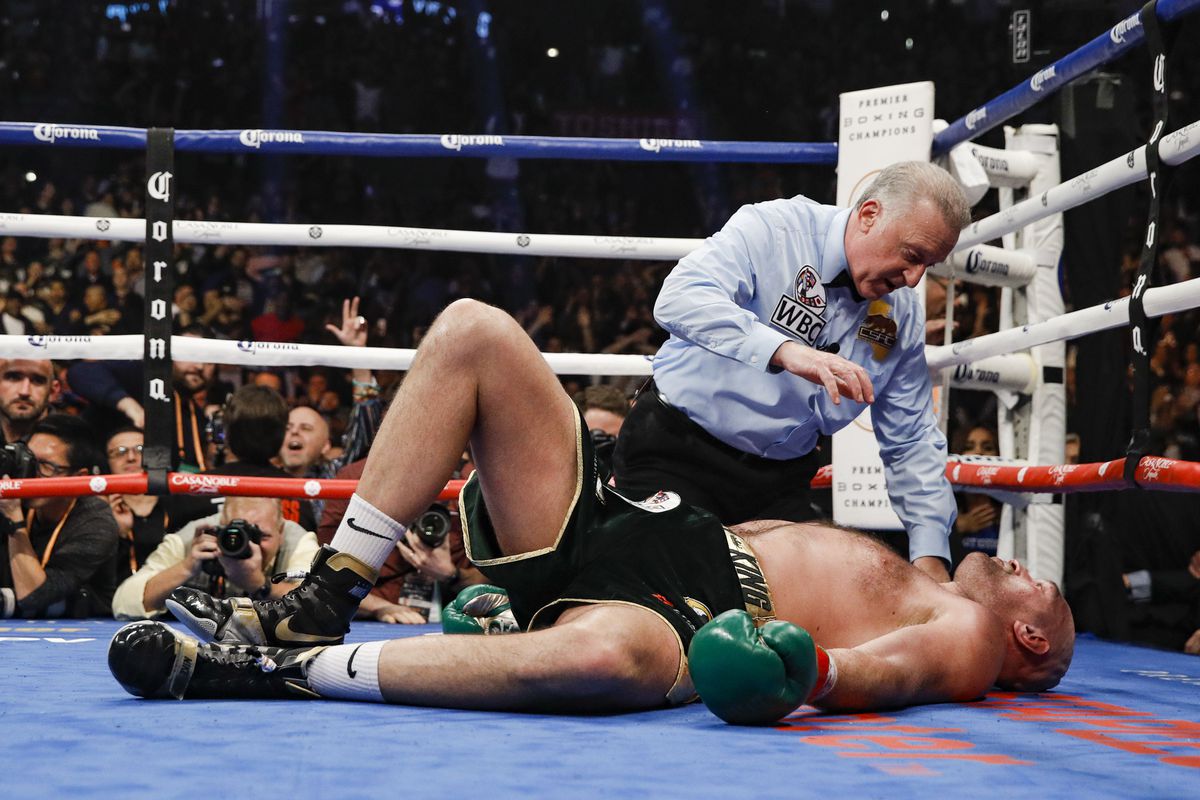December 1st, 2018. After twelve grueling rounds in the boxing ring, Tyson Fury lays motionless on the canvas after a savage combination. His opponent Deontay Wilder sprints away in celebration and looks to have clawed victory from the jaws of a points defeat. Yet Fury’s eyes blink into life. In seconds, he’s back on his feet. Stable and lucid, the referee waves to continue the fight. Wilder looks stunned to see his rival come back for more and the pair trade blows until the final bell brings a roar from the crowd. Minutes later a controversial draw is announced, a potential rematch, a certainty. The fight is one for the history books but will be remembered for a lot more than what went on in the ring.
A year earlier, absent from the sport for two-and-a-half-years, Fury weighed one-hundred and eighty kilograms or twenty-eight and a half stone. During his hiatus, the Manchester boxer considered suicide as he battled depression and drug addiction. The situation is more astounding in his return to the ring less than a year later. One hundred and fifty pounds lighter. Not only had Fury achieved something remarkable in the ring, but out of it a different kind of victory is even more worthy of applause. To come from rock bottom and climb back to the world level of sport is astonishing. In a country where suicide remains the biggest killer of men under fifty, the openness of mental health from a predominant figure in boxing is admirable and inspiring.
In the days after the fight there were nominations for Sports Personality of the Year (SPOTY) and labels of the ‘people’s champ’ from fans and figures in the media. The comeback story had gripped the imagination of many but questions remained, was Fury worthy? No one can deny Fury’s talent in the ring or what an inspiration for mental health his story has become. But outside of these areas there is a history of controversy and much to answer for.
Sexism, Trans-phobia, Anti-Semitism, and Homophobia
Some will claim that what an athlete does outside of their craft has no relevance. To a certain degree, I agree. No matter what Fury does or says outside of the ring, his achievements within it can never be diminished. Tiger Woods, David Beckham and John Terry all have multiple cases of infidelity on their records, yet the trophies and achievements won’t disappear as a result of actions in their private lives. Where I draw the line is when an athlete or celebrity uses their public platform for nonsporting purposes. Such an action is a signal of crossing from private life to public life. Using this platform for their views opens the individual for scrutiny. On that note, let’s have a look at some comments Tyson Fury has publicly made in past interviews:
- Claimed he would hang his sister if he deemed her promiscuous and believes “a woman’s best place is in the kitchen and on her back”.
- Fury likened homosexuality to paedophilia and explained that he believes the legalisation of homosexuality and abortion are two of the “three things that need to be accomplished before the devil comes home”.
- Comparing the existence of transgender people to the practice of bestiality, claiming sexual relations with animals would be legalised within 10 years.
- Made Anti-Semitic comments that the public were “brainwashed by all the Zionists, Jewish people who own all the banks, all the papers, all the TV stations. Brainwashed by them all.”
Fury’s supporters will point out he has apologised for these incidents, but it means little to the people from these communities. Fury offers vague and unconvincing apologies only when faced with immense public pressure. Equally this is not a case of private views becoming known to the public, this is an individual with a platform using it to spread points of view. His opinions should be open to criticism as a result.
Can Art Be Separated From The Artist?
Tyson Fury is not the only athlete in the public eye with questionable actions outside of their craft. Footballers found guilty of assault include Joey Barton and Danny Simpson. Wayne Rooney, Hugo Lloris, Yaya Toure and Roberto Firmino have all received drink driving convictions. Finally, Cristiano Ronaldo who is arguably the most famous footballer in the world is currently embroiled in a rape case from a decade ago. The German publication Der Spiegel claims to possess the damning documentation in which Ronaldo admits to raping the victim and has handed over this content to the relevant authorities investigating the case.
Outside of sport we have musicians like Chris Brown still hitting the top of the charts, Roman Polanski making A-list movies and Mark Wahlberg starring in Hollywood productions. In other industries domestic abuse, child sex offenses and racially motivated assaults warrant an end to a career. So why do we draw a different line with sport and celebrity?
To answer the question this blog poses is difficult. We cannot be naïve to the world we live in. The examples of individuals in this blog generate enormous sums of money through their crafts. As long as this continues someone, somewhere will be willing to enable them for a share. Part of the responsibility therefore falls to the end consumers, us, who invest both money and the precious commodity of time in following their work. So long as we remain willing to consume these figures’ output, they will continue to make more. The reason the likes of Kevin Spacey see their careers end is not because morally the industry finds them contemptuous but rather because the public do and they are the ones with the money.
To answer the question this blog poses involves looking at the media and ourselves, the consuming public. Why do we ask sportsmen and wider celebrities their view on issues they have no expertise in, therefore giving them a platform? In recent months I have seen Danny Dyer give his views on Shamima Begum and the Spice Girls’ views on Brexit.
Rather than asking if we can separate the sport from the sportsman, we need a deeper look at why we are trying.

You can also follow me on Facebook: https://www.facebook.com/jamesdammauthor/



Recent Comments